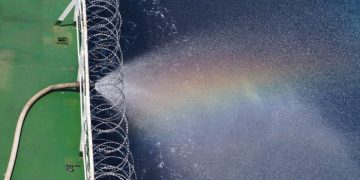Energy efficiency with variable frequency drives
Konstantinos Kanellakis, Marine Business Development, Group Product Manager Motion & Drives, Schneider Electric presentation during the 2015 GREEN4SEA Forum. The presentation is about the energy efficiency potential of using variable speed drives to run fans and pumps. Usually valves and dampers are used to regulate the flow of air or liquids, which demands more energy than controlling the flow with drives. Two of the most promising solutions are mentioned and a case study of an actual installation and the energy efficiency achieved. All the issues that may arise by the use of drives on ships, like harmonics, electromagnetic interference (EMC) and voltage peaks are analysed. There are many ways to reduce a ship’s energy consumption, one of which is with the use of variable speed drives. Variable speed drives have a low investment cost and are easy to install, even when the ship is travelling. Another important factor is that it is also one of the solutions with the fastest return-on investment. A variable speed drive is a device which gets power from the network (440V-60Hz) and transforms it so that it will run a motor at the speed we want with the torque our application needs. There are many ...
Read more























































